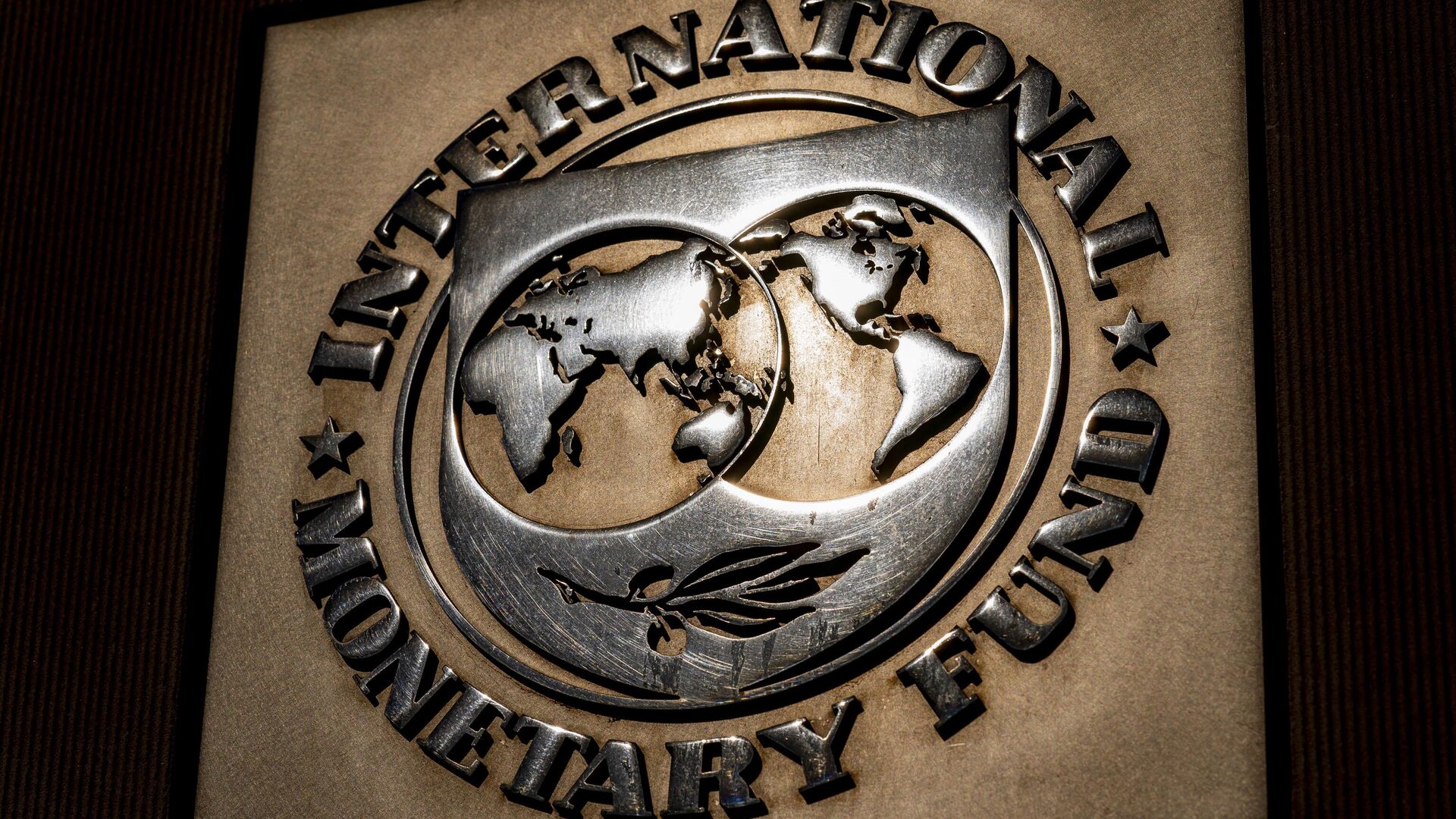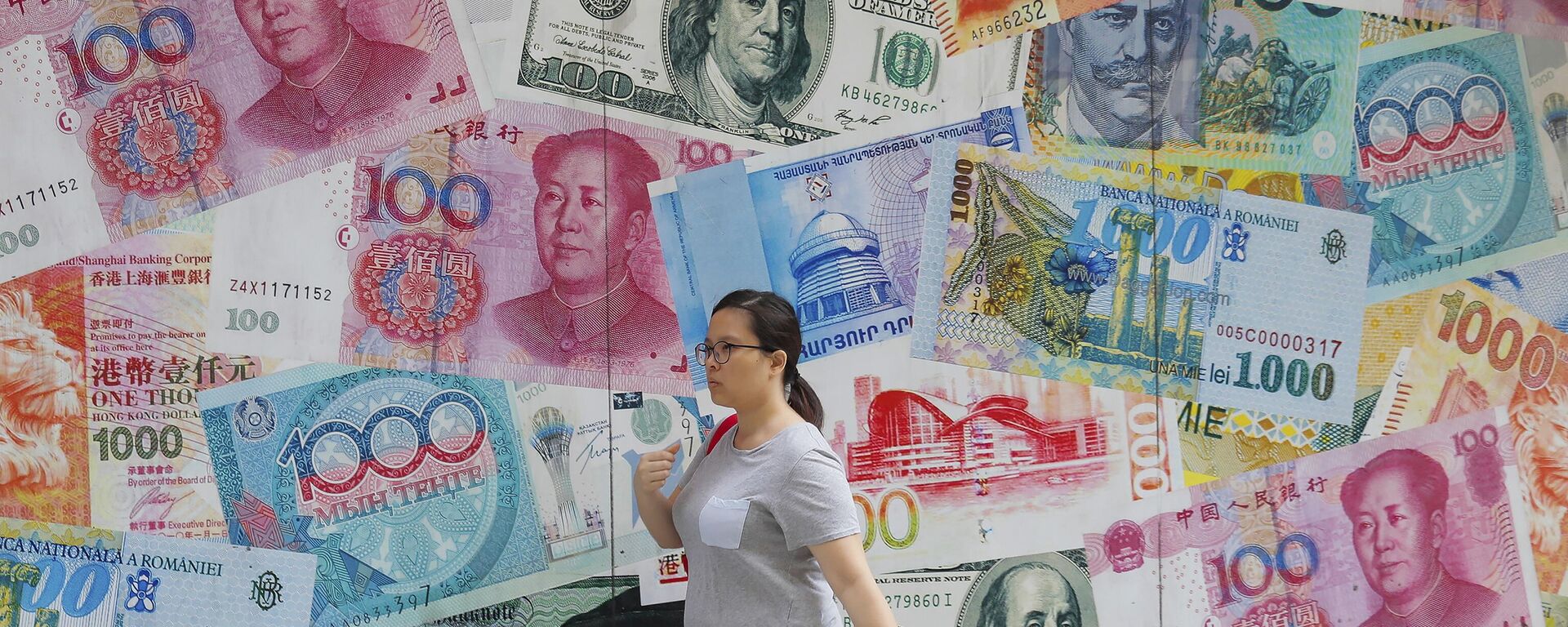https://sputnikglobe.com/20230715/imf-considers-the-inclusion-of-chinese-yuan-as-currency-for-settlement-1111895261.html
IMF Considers the Inclusion of Chinese Yuan as Currency for Settlement
IMF Considers the Inclusion of Chinese Yuan as Currency for Settlement
Sputnik International
According to Julie Kozack, a spokesperson for the IMF, Argentina made a significant payment of $1.1 billion using Chinese currency out of the total $2.7 billion due last month.
2023-07-15T18:31+0000
2023-07-15T18:31+0000
2025-04-07T11:07+0000
newsfeed
imf
argentina
china
brazil
international monetary fund
economy
viral news
https://cdn1.img.sputnikglobe.com/img/07e7/01/0e/1106315999_0:160:3073:1888_1920x0_80_0_0_4250777915e9cf4b63943ba2500f3cf5.jpg
The International Monetary Fund (IMF) has hinted at incorporating the Chinese Yuan as an acceptable form of currency for member countries to use in meeting their financial obligations to the Fund. This proposal comes after Argentina used the yuan to repay a portion of its debt. During a press briefing, Kozack stated, "As we have stated in the past, the Argentine authorities continue to remain current on their financial obligations to the IMF... The RMB is one of the five freely usable currencies that members can and have used to settle their obligations with the IMF."Kozack confirmed that discussions regarding the $44 billion loan program are still ongoing. She debunked the claim that the IMF had received a letter from China allowing Argentina to utilize a swap line with the Chinese Central Bank to settle its IMF debts. She emphasized that the IMF team has been actively collaborating with Argentine authorities to achieve two goals: completing the fifth review and addressing complex challenges.The Need for the Chinese YuanLast month, the Central Bank of Argentina and China agreed to extend their swap line for another three years. This means that Argentina can access funds worth 130 billion yuan (equivalent to $18.4 billion) from China. The new agreement doubles the amount of money that Argentina can freely use from 35 billion yuan to 70 billion yuan.On June 29th, the Argentine central bank announced that it has included the Renminbi yuan as an accepted currency for deposits in savings banks and checking accounts. This move signifies a departure from relying solely on the US dollar as its reserve currency. The central bank stated, "Financial entities will thus be enabled to open bank accounts denominated in renminbi yuan."This decision comes as Argentina faces dwindling foreign currency reserves due to unfavorable drought conditions that have significantly decreased its grain exports, which are its main source of revenue in dollars. The weak Argentine Peso is also affected by the country's annual inflation rate of about 109 percent. According to El Instituto Nacional de Estadística y Censos de la República Argentina (INDEC), approximately 40 percent of Argentines were living in poverty in the second half of 2022.President Alberto Fernández’s government is working to rebuild reserves to meet debt payments, cover trade costs, and achieve economic targets under a $44 billion IMF loan program before the upcoming general elections in October.Yuan Trails the Dollar's LeadLike Argentina, Brazil has signed a deal with China this year to facilitate trade and investments in their respective currencies, reducing the dominance of the US dollar.According to Milton Ezrati, chief economist at Vested, the agreement aims to promote the yuan as a global currency, but it still lags behind the dollar as an international reserve currency. Ezrati explained, "If you are the world’s reserve currency, as the dollar is, then traders all over the globe have to hold your currency because that’s the way they do their business. If they hold your currency, they want a place to invest it."
https://sputnikglobe.com/20230701/dedollarization-accelerates-as-argentina-makes-imf-payment-using-yuan-1111605999.html
argentina
china
brazil
Sputnik International
feedback@sputniknews.com
+74956456601
MIA „Rossiya Segodnya“
2023
Chimauchem Nwosu
https://cdn1.img.sputnikglobe.com/img/07e7/09/01/1113046371_0:99:1536:1635_100x100_80_0_0_9c5c627283eca931c39fe4852bbb301c.jpg
Chimauchem Nwosu
https://cdn1.img.sputnikglobe.com/img/07e7/09/01/1113046371_0:99:1536:1635_100x100_80_0_0_9c5c627283eca931c39fe4852bbb301c.jpg
News
en_EN
Sputnik International
feedback@sputniknews.com
+74956456601
MIA „Rossiya Segodnya“
Sputnik International
feedback@sputniknews.com
+74956456601
MIA „Rossiya Segodnya“
Chimauchem Nwosu
https://cdn1.img.sputnikglobe.com/img/07e7/09/01/1113046371_0:99:1536:1635_100x100_80_0_0_9c5c627283eca931c39fe4852bbb301c.jpg
imf, international monetary fund, julie kozack, argentina, chinese currency, central bank of argentina, brazil, china, argentine central bank, reserve currency, us dollar, argentine peso, el instituto nacional de estadística y censos de la república argentina, indec, imf loan, president alberto fernández
imf, international monetary fund, julie kozack, argentina, chinese currency, central bank of argentina, brazil, china, argentine central bank, reserve currency, us dollar, argentine peso, el instituto nacional de estadística y censos de la república argentina, indec, imf loan, president alberto fernández
IMF Considers the Inclusion of Chinese Yuan as Currency for Settlement
18:31 GMT 15.07.2023 (Updated: 11:07 GMT 07.04.2025) According to Julie Kozack, a spokesperson for the IMF, a significant proportion of the payment Argentina made last month ($1.1 billion out of $2.7 billion) was made using Chinese yuan.
The International Monetary Fund (IMF) has hinted at incorporating the Chinese Yuan as an acceptable form of currency for member countries to use in meeting their financial obligations to the Fund. This proposal comes after Argentina used the yuan to repay a portion of its debt.
During a
press briefing, Kozack stated, "As we have stated in the past, the Argentine authorities continue to remain current on their financial obligations to the IMF... The RMB is one of the five freely usable currencies that members can and have used to settle their obligations with the IMF."
Kozack confirmed that discussions regarding the $44 billion loan program are still ongoing. She debunked the claim that the IMF had received a letter from China allowing Argentina to utilize a swap line with the Chinese Central Bank to settle its IMF debts. She emphasized that the IMF team has been actively collaborating with Argentine authorities to achieve two goals: completing the fifth review and addressing complex challenges.
The Need for the Chinese Yuan
Last month, the Central Bank of Argentina and China
agreed to extend their swap line for another three years. This means that Argentina can access funds worth 130 billion yuan (equivalent to $18.4 billion) from China. The new agreement doubles the amount of money that Argentina can freely use from 35 billion yuan to 70 billion yuan.
On June 29th, the Argentine central bank
announced that it has included the Renminbi yuan as an accepted currency for deposits in savings banks and checking accounts. This move signifies a departure from relying solely on the US dollar as its reserve currency. The central bank stated, "Financial entities will thus be enabled to open bank accounts denominated in renminbi yuan."
This decision comes as Argentina faces dwindling foreign currency reserves due to unfavorable drought conditions that have significantly decreased its grain exports, which are its main source of revenue in dollars. The weak Argentine Peso is also affected by the country's annual inflation rate of about 109 percent. According to El Instituto Nacional de Estadística y Censos de la República Argentina (INDEC), approximately 40 percent of Argentines were living in poverty in the second half of 2022.
President Alberto Fernández’s government is working to rebuild reserves to meet debt payments, cover trade costs, and achieve economic targets under a $44 billion IMF loan program before the upcoming general elections in October.
Yuan Trails the Dollar's Lead
Like Argentina, Brazil has signed a deal with China this year to facilitate trade and investments in their respective currencies, reducing the dominance of the US dollar.
According to Milton Ezrati, chief economist at Vested, the agreement aims to promote the yuan as a global currency, but it still lags behind the dollar as an international reserve currency. Ezrati explained, "If you are the world’s reserve currency, as the dollar is, then traders all over the globe have to hold your currency because that’s the way they do their business. If they hold your currency, they want a place to invest it."




